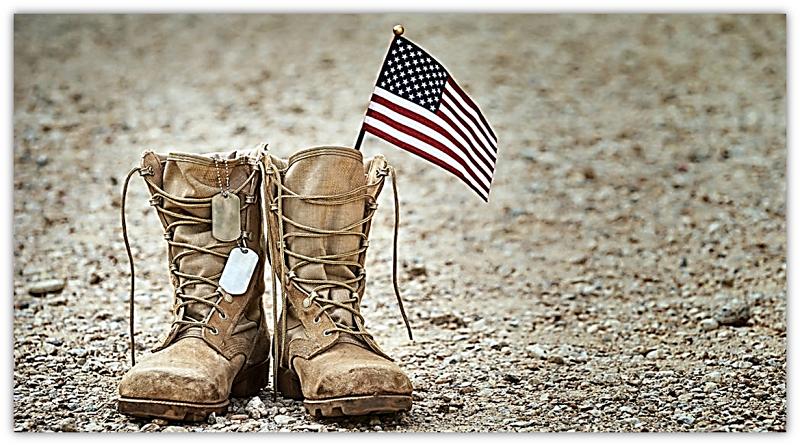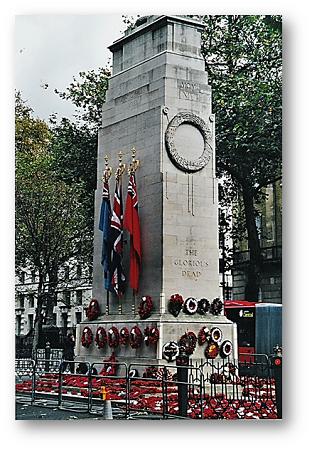Remembrance Day – A Cult for the Dead?
Remembrance Day – A Cult for the Dead?

The Encyclopedia Britannica describes "Remembrance Day," or as it more universally known, "Veterans Day," in close relation to various cults for the dead.1 In the same paragraph in which it describes Remembrance Day it describes the festival celebrated in ancient Athens called the Anthesteria. The Anthesteria was a three day Spring holiday which celebrated the new season of growth and renewed life. But this festival also had a sombre side to it, for the Anthesteria ended with a ceremony by which the spirits of the dead were chased back to the dark world in Hades. It ended with the cry, "Out of the door with you, souls! Anthesteria is over!"
Will Durant, a well-known historian who describes the Anthesteria, significantly says in this connection, "In many parts of Europe, people still believe that the ghosts of the dead return to earth yearly, and must be entertained in a 'Feast of all Souls.'"2 Durant here refers to the Roman Catholic feast celebrated on November 2 when many followers of Rome visit the graves of loved ones with their consciences burdened with all kinds of superstitions – such as are well-known about the church at Rome. The Encyclopedia Britannica describes All Souls Day just before describing Remembrance Day.
This raises for us various questions: what really is the nature of the Remembrance Day ceremony? Is it some kind of adaptation because of recent historical events of the Anthesteria? Or a secularized All Soul's Day? Does it fit the same classification as these ceremonies that commemorate the dead as the Britannica suggests? Is it, to put the question bluntly, a new cult for the dead? If this is the case, then surely, it is something we should have nothing to do with!
And there is some reason for thinking that we should have nothing to do with the Remembrance Day ceremonies. Many people think of this ceremony in mystical ways. It is thought that we owe it to those men and women who died to remember their sacrifice. They had given the greatest gift a person can give: their very life. We should gather to thank those people for such a gift, albeit, posthumously.
The gathering at the Cenotaph and the other solemn acts performed on Remembrance Day are often regarded as gestures based on the belief that these people had forged history. By their heroic fighting, even to the death, they had kept the world free of despotism such as had overwhelmed most of Europe during both World Wars in this century. These people had defended our ideals of peace and freedom and had been victorious.
If this is indeed what the Remembrance Day ceremonies are about, then the Britannica is quite right when it connects it to other pagan commemorations of the dead. And we should be warned by the Apostle John who closes his first letter by saying, "Little children, keep yourselves from idols."
Of course, as Christians we must be wise and discerning, but we need not always be turning our backs and fleeing simply because the world perverts what was and should be good and right. This applies in particular to the ceremonies of Remembrance Day.
Remembrance Day is for us a celebration of God's clear activity in this world. It is a fine opportunity to observe and to confess that our God is carrying this world along to accomplish what He wants.
We should observe that nations will go to war just as Christ Jesus had foretold. We can expect nothing less either for the past nor for the future of human history. Christ has said,
You will hear of wars and rumours of war… For nation will rise against nation, and kingdom against kingdom.Matthew 24:6-7
This reinforces the ancient wisdom of the preacher who spoke of "a time for peace and a time for war" (Ecclesiastics 3:8). We had better get used to war, for that is a part of sinful human reality.

However, it is also a time to observe God's remarkable blessings upon us, for He brought something good out of the wars of this century: freedom for us to worship God. The Apostle Paul says that we should be praying for such freedom and peace (1 Timothy 2:2), therefore, when we enjoy it, we should recognize that God has answered our prayers.
Therefore, Remembrance Day ceremonies should be a time to thank God for the victories that have given such freedom to us. It is a time to thank God for filling men's hearts with such zeal that they were willing to fight, even to die for this peace; for giving world leaders the wisdom to oppose tyranny and injustice even by calling their nation to war. Remembrance Day is clearly also a day in which we should earnestly petition God to restore wisdom to national leaders so that the peace we enjoy and which can today be enjoyed in places where it has been unknown for generations (as in Russia and Eastern Europe) may be preserved for the sake of the church.
But we know that it will not be preserved. "Nation will rise up against nation." As we commemorate the death of many men and women our thoughts can hardly help but to turn to a new day when for a last time they shall beat their swords into ploughshares and their spears into pruning hooks; when nation shall not lift up sword against nation, neither shall they learn war any more (Isaiah 2:4). But that cannot be done in a United Nations resolution, nor by an international superpower. It cannot happen in this world. For here we have no lasting city. We seek the city which is to come.
So, there is much godly reason for participating, indeed, for leading in Remembrance Day ceremonies. At 11 minutes past 11:00 a.m. on November 11, let us pause and think these things and offer such prayers.

Add new comment